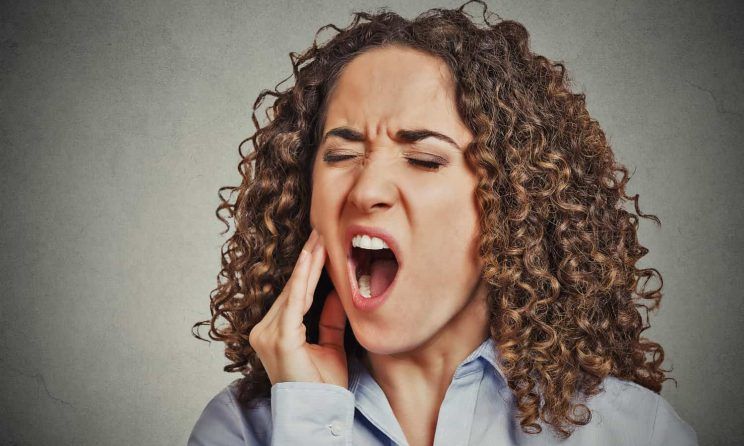Your dentist is the best person to help you decide what treatment suits for your kind of sensitive teeth even if it is only an over the counter available desensitising toothpaste.
One of the most common complaints when it comes to teeth and a reason to seek dental care is sensitivity. Described by many as an obvious painful sensation on having very cold, hot or even sweet food, it is also reported by some as a sharp pain on brushing or even when teeth come in contact with a gush of cold air!
This sensation could be limited to just one tooth or maybe felt in a segment or even the entire mouth which is referred to as generalised sensitivity/ hypersensitivity.
Ambiguous as it may seem, the real cause of your sensitive teeth can be ascertained by your dentist and will fall into one of these categories.
A. Generalised sensitivity caused by overall wear or erosion of teeth- Poor brushing technique which includes sideways brushing or use of a hard bristled brush causes the enamel, which is the outermost protective layer of the tooth to wear out. This happens especially where it is thinnest, i.e. the part where the visible portion of the tooth meets the gum, leaving the second layer or dentin exposed along with its tiny nerve endings. Your dentist will advise you to start with adopting the proper method of brushing with a soft bristled brush. Worn out teeth may require fillings and this may be followed up by in-office fluoride/desensitizing agent application over the teeth. Use of a desensitising toothpaste may be recommended to you.
B. Receding gums- Another common cause of generalised sensitivity is the roots of teeth left exposed by the falling level of your gums or gingiva. The exposed roots are not covered by enamel-like the top portion of the tooth and hence feel more sensitive. Poor oral hygiene and poor brushing technique are the main culprits behind the receding gum level, although poor general health condition or lifestyle diseases may also contribute to unhealthy gums.
Here, the most important thing is to get your teeth cleaned or scaled. You may also be advised deep cleaning below the gum level which is called root planing. Use of antibiotics for infected gums, fluoride application, use of desensitising toothpaste and even laser-assisted treatments may be recommended depending on your case. Gum surgery or grafting may be advised in more severe cases.
C. Teeth grinding- A lot of people have the habit of unknowingly grinding their teeth especially at night. Some may complain of jaw tightness and muscle ache on waking and few may present with sensitivity in teeth due to worn out tooth surfaces which happens over time due to the constant grinding. Your dentist will identify the problem and along with treating the sensitivity, will also advise a soft splint appliance or mouth guard to be worn by you to break the grinding habit.
Individuals with severely worn-out teeth are candidates for more extensive dental work involving many or all teeth wherein root canal treatment and capping of teeth may be done to treat symptoms and restore function.
D. Broken fillings and/or cavities- If you have an existing filling in your tooth that is feeling sensitive, chances are that the filling is broken/chipped or worn out or tooth decay has started around the filling edges. Broken fillings should be replaced with new ones after cleaning out any fresh decay. Although, if the cavity has gone too deep, a root canal treatment will be required to relieve you of your symptoms.
E. Cracked tooth- Often a tooth which is cracked goes unnoticed by the naked eye and even a dental x-ray. Sensitivity, usually to cold in one tooth and pain on biting down which is relieved on releasing the biting pressure are common signs of a cracked tooth. The treatment will depend on the level of the crack and may range from a filling to a root canal treatment or even pulling out the tooth in question if the crack is below the gum level.
Take home points
-
Do remember that at times dental procedures themselves may cause temporary sensitivity in teeth. Scaling, new fillings or teeth bleaching can cause teeth to become sensitive and you should expect this to subside within a day or two.
-
Your dentist is the best person to help you decide what treatment suits for your kind of sensitive teeth even if it is only an over the counter available desensitising toothpaste.
-
It goes without saying that twice a day brushing, regular flossing and rinsing after meals and regular dental visits go a long way in preventing all dental issues including the oh so sensitive tooth!





